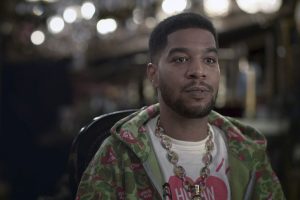The dangerous shield of online anonymity and dealing with toxic behavior online
February 24, 2022
Online platforms have proven to be incredibly powerful tools for communication and when used properly, can provide people with genuine experiences that would not be easily accessible or even possible in person. However, whether it be the comments of a TikTok video, the chat messages of a live stream or the voice chat of an online game, there is one problem that can be found across all of these spaces. No matter the platform, the anonymity of an online username is too often easily abused and taken advantage of to spread toxicity. The “security” of being able to hide behind an online persona and not have one’s actions and behavior be easily traceable and properly face consequences has been an opportunity that has been taken advantage of far too often. As a result obscenely hateful, bigoted comments that spread bigotry, racism and misogyny have unfortunately become far too normalized in certain spaces.
Certain spaces can be much more potent for this hostile behavior, such as online gaming. As someone who plays games frequently, people abuse voice chat and use it as a platform to be unnecessarily creepy and hostile towards others, especially with female players. I’ve spoken to several female friends about their experiences in online gaming and it was eye-opening as a male to learn that there was a feeling of relief that comes with them talking on voice chat and being treated as a normal person instead of immediately being singled out for their gender whether it be through insults or unwanted advances. Some have had such bad experiences that they elect to only play with voice chat with known friends or not use voice chat at all until after they’ve confirmed that the other individuals on it aren’t showing toxic behavior, which actively makes their experience with the game harder to enjoy than it should be.
Comments on social media and other text-based platforms of social media can contain such obscenity and hate that it’s hard to imagine that an actual human was behind those words. I can’t speak as to what would cause some people would act in such toxic behavior. It could range from pent-up aggression to attention-seeking, to scaringly genuine hate but regardless of what the reasoning is, the inability to trace these actions back to their real, personal lives is largely a reason as to why they continue to act in this manner. I doubt many of these individuals would act the way that they do if they were able to face immediate consequences for their behavior but the shield of staying anonymous online only helps foster toxic mentalities.
As someone who spends a lot of time communicating online, I eventually realized and found disturbing how desensitized I became to a lot of this hostility. It’s too easy to just chalk it up to being “just how the internet is” and move on from it, especially when it doesn’t immediately affect you. However, this behavior can genuinely negatively impact people on emotional levels, and too often, overlooking those comments and hate and letting them be can open the door to even more that can negatively affect others. I believe we should have the responsibility to call out unwarranted hate in spaces where we can make an impact but I do recognize that the effectiveness and availability to do so varies heavily depending on the platform. There isn’t a one size fits all solution to dealing with online harassment. Sometimes it is best to call out toxic behavior publicly when it’s actively harming those around you in an immediate vicinity. Other times though, it may be best to not give a hateful social media comment any attention as responding to them only gives that hate more of a platform to reach others. Online hate will not simply go away and it’s not always explicable as to why people would feel it necessary to partake in it. However, it’s important to recognize what we can do to combat it and properly show within our spaces that it should not be tolerated.








